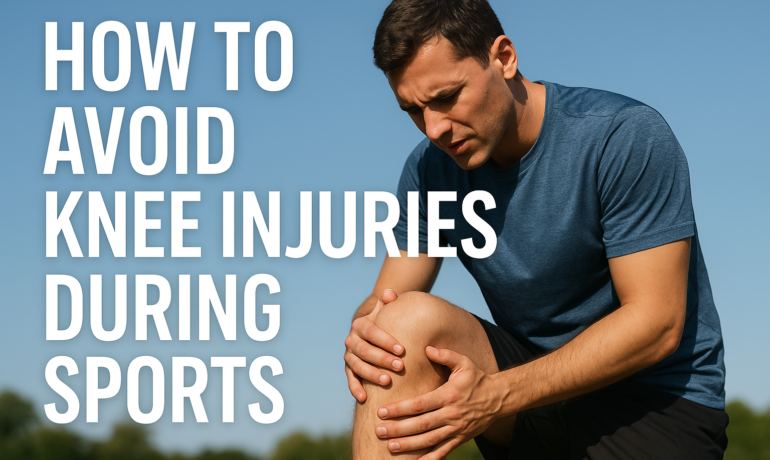Knee injuries are among the most common setbacks faced by athletes and fitness enthusiasts. Whether you play football, basketball, tennis, or run marathons, the knees take on enormous stress. Preventing knee injuries not only helps maintain athletic performance but also ensures long-term joint health. Let’s explore effective ways to protect your knees during sports activities.
Understanding the Importance of Knee Protection
The knee joint connects the thigh bone to the shin bone, supported by ligaments, tendons, and cartilage. During sports, repetitive movements, sudden twists, and high impact can strain these structures, leading to conditions like ligament tears, meniscus injuries, and patellar tendinitis. Knowing how to avoid knee injuries starts with understanding how the joint functions and what causes damage.
1. Strengthen the Supporting Muscles
Strong muscles stabilize the knees and absorb shock. Focus on strengthening your quadriceps, hamstrings, glutes, and calf muscles through resistance training. Exercises like squats, lunges, and leg presses improve stability and alignment. A balanced strength routine prevents overloading one muscle group, reducing the risk of strain and imbalance that can cause injury.
2. Improve Flexibility and Mobility
Tight muscles can pull the knee out of proper alignment. Stretching the hamstrings, quads, hip flexors, and IT band before and after workouts helps maintain joint mobility. Include yoga or dynamic stretching in your warm-up routine to improve range of motion and reduce tension in the surrounding tissues.
3. Wear Proper Footwear
Wearing the right shoes for your sport plays a major role in knee protection. Sports-specific footwear provides correct arch support, cushioning, and grip. Worn-out soles can alter alignment and strain your joints. Replace athletic shoes regularly and use custom orthotics if you have flat feet or overpronation.
4. Focus on Technique and Body Mechanics
Incorrect posture or technique increases the likelihood of knee ligament injuries. Learn proper movement patterns from a qualified coach or physiotherapist. For example, avoid inward knee collapse while jumping or squatting. Proper landing techniques distribute force evenly, preventing stress on the ligaments.
5. Don’t Skip Warm-Up and Cool-Down
A 10-minute warm-up prepares the muscles for activity and improves blood circulation. Include light cardio, mobility drills, and dynamic stretches. Cooling down after exercise with static stretches helps reduce stiffness and aids recovery. Ignoring these essential steps is a major cause of sports-related knee pain.
6. Listen to Your Body and Rest
Overtraining or pushing through pain can lead to serious sports injuries. Rest days are crucial for tissue repair and muscle recovery. If you experience swelling, discomfort, or reduced motion, stop immediately and seek medical attention. Early diagnosis can prevent minor problems from developing into chronic knee conditions.
7. Use Knee Braces or Supports When Needed
Athletes recovering from previous injuries can benefit from protective gear. Knee braces, sleeves, or taping provide additional support during high-intensity movements. They help maintain proper alignment and reduce stress on vulnerable joints. However, they should complement—not replace—strength and conditioning programs.
8. Maintain a Healthy Weight and Nutrition
Excess body weight increases pressure on the knees during movement. A balanced diet rich in calcium, vitamin D, and omega-3 fatty acids supports bone and cartilage health. Staying hydrated keeps the joints lubricated, ensuring smooth motion and reduced friction during sports.
Conclusion
Preventing knee injuries during sports requires a smart blend of strength, flexibility, and awareness. By training mindfully, wearing proper gear, and respecting your body’s limits, you can enjoy your favorite sports safely.
Stay active, play safe, and give your knees the care they deserve — because strong knees mean stronger performance.

